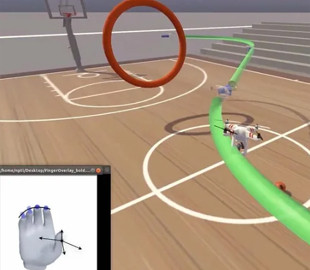
Scientists have made a real breakthrough in the field of neurotechnology, creating a brain-computer interface that allows people with paralysis to control virtual objects with unprecedented accuracy.
During the experiment, a participant with tetraplegia was able to control a virtual drone using only his thoughts.
This innovative interface reads signals directly from the motor cortex of the brain, which is responsible for movement. Thanks to machine learning, the system learned to interpret these signals and translate them into commands for controlling the drone. The participant in the experiment was able to independently move his virtual fingers, which allowed him to perform complex maneuvers in a virtual environment.
This achievement opens up new prospects for people with disabilities. Thanks to the brain-computer interface, they will not only be able to restore lost functions, but also gain access to new opportunities. For example, controlling robotic prostheses, communicating with others, and even working remotely.
Scientists note that this is only the first step on the path to creating more advanced brain-computer interfaces. In the future, they plan to develop more compact and safe devices that can be widely used in clinical practice.
This research is an important step towards creating technologies that can improve the quality of life of people with disabilities. It also opens up new prospects for the development of artificial intelligence and neural interfaces.

